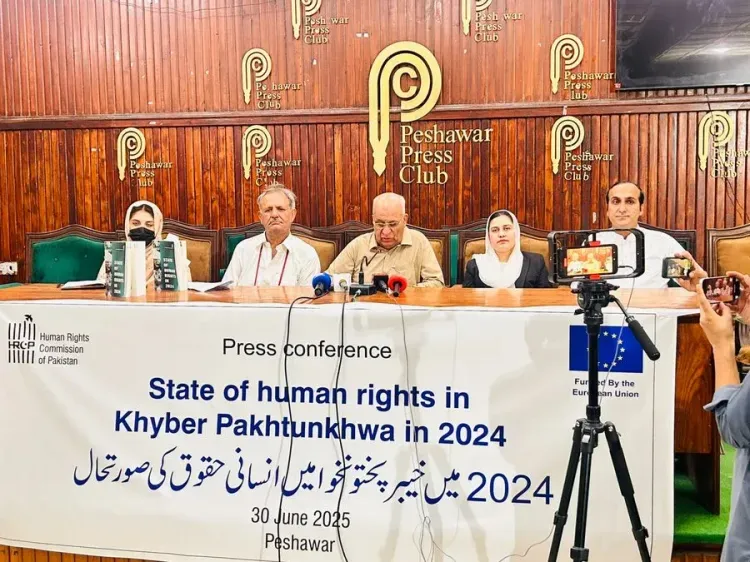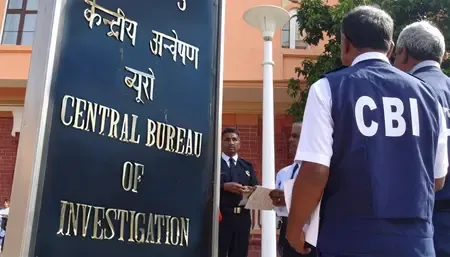Is Pakistan's Human Rights Commission Concerned About Declining Democratic Standards?

Synopsis
Key Takeaways
- Significant decline in democratic standards in Pakistan.
- Increasing violence and human rights violations reported.
- At least 105 new enforced disappearances documented.
- Rising sectarian violence with nearly 250 deaths.
- Environmental challenges, including floods, affecting the population.
Islamabad, July 1 (NationPress) The Human Rights Commission of Pakistan (HRCP) has raised alarms regarding a notable decline in democratic standards within the nation, driven by growing apprehensions about the credibility of general elections and the erosion of the parliamentary framework.
During a press briefing on Monday, the HRCP unveiled its annual report detailing the situation of human rights in Pakistan for 2024.
The report indicated that Khyber Pakhtunkhwa province faced substantial civilian and security personnel casualties in 2024 due to militancy, highlighting a deteriorating security climate. In the Kurram district, the rights organization noted that sectarian strife and tribal conflicts resulted in nearly 250 fatalities, while the resultant disruption of transport and supplies triggered a humanitarian emergency.
“The decline in governance, civic liberties, and law enforcement has raised significant concerns regarding the region’s political and social stability. Data from provincial authorities revealed that 77 individuals were charged with blasphemy, leading to the arrest of 49 individuals, including a woman. The horrific lynching of a tourist in Swat, following a blasphemy accusation, exemplifies a disturbing trend of vigilantism emerging across the country,” the HRCP report stated.
“The government's prohibition of the Pashtun Tahafuz Movement prior to a national jirga further restricted civic freedoms. The report also documented a minimum of 105 new cases of enforced disappearances in the province, as per official records, necessitating recurrent judicial actions,” it continued.
Furthermore, the HRCP report noted that legislative activity was limited, with just 30 bills introduced and 21 passed. It emphasized that the judiciary in Pakistan continues to be under pressure, with over 23,000 cases pending at the Peshawar High Court and a backlog surpassing 38,000, many involving contempt actions against political figures and policy makers.
The report highlights ongoing gender-based violence, including numerous incidents of domestic violence, sexual assault, and honor killings.
“Violence against minors has escalated, with numerous children killed, assaulted, or sexually exploited, showcasing critical deficiencies in child protection. Khyber Pakhtunkhwa has also been an important pathway for the repatriation of Afghan nationals under the federal Illegal Foreigners Repatriation Plan,” it stated.
Additionally, the report pointed out that labour rights violations persist, with at least 26 miners losing their lives due to unsafe working conditions and militant assaults, highlighting the ongoing dangers faced by workers in extraction sectors.
“A surge in kidnappings saw at least 30 laborers abducted by militants in various incidents. Ongoing wage-related issues were reported across different sectors, despite provincial commitments to enhance the minimum wage. Environmental challenges have escalated, with floods and heavy rains claiming over 100 lives and Peshawar being listed among the world’s most polluted cities,” the report concluded.









